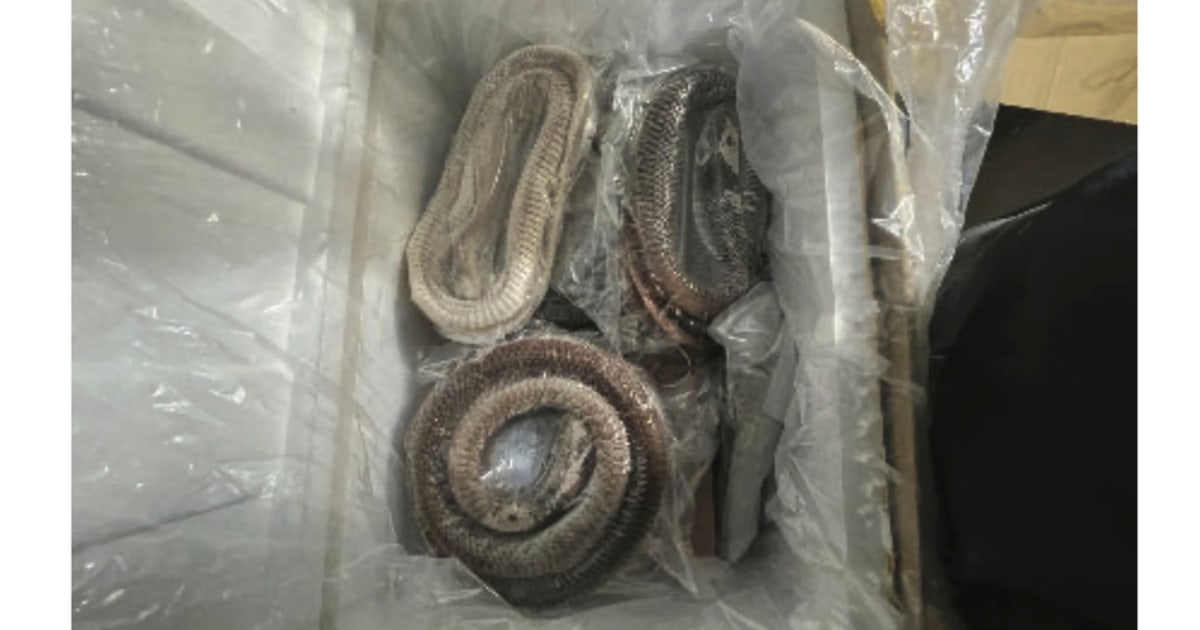In 2014, Duclair's last duck farmer closed its doors.
About thirty specimens then joined the enclosures of the Maison du Parc naturel regional des Buckles de la Seine, in Notre-Dame-de-Bliquetuit (Seine-Maritime, between Rouen and Le Havre), on the initiative of the Safeguarding Collective of the Norman poultry breeds (CSRAN), Since then, a building has been built and three incubators started up.
Now that the ducklings are born, to get the industry off the ground, breeders must be interested.
READ ALSO>
In Yvelines, Eric Sanceau, breeder of forgotten breeds
With its black dress with green reflections and its white bib, which earned it its nickname "avocado", the Duclair duck is an ancient breed probably resulting from a cross between wild ducks and backyard ducks.
Raised in the geographical area of the Loops of the Seine in Seine-Maritime, he owes his fame to Henri Denise, the chef of the Hôtel de La Poste in Duclair.
Around 1900, the latter brought gourmets from all over the world with his recipe.
With their black coat and white bib, Duclair's ducks are also excellent aids to farmers by preventing fluke and participating in weeding.
Frederic DURANT
But globalization has also been there!
“Today, in the world, there are three breeds of breeding.
The best known is Mulard, a mixture between Peking and Barbary.
In two months, it can weigh three kilos, while in five months, Duclair's duck will only weigh 1.8 kilos, ”explains Jennifer Mayaud, in charge of food and supply chain at the Park.
It's not all about numbers here!
“Duclair's duck has lots of advantages.
It is a robust.
It can be bred outdoors from the age of three weeks.
With its survival instincts and unselected genes, it is capable of defending itself and alerting in the event of predator attacks, ”explains the specialist.
Good against pests and for weeding
It is therefore with the support of the Normandy region, within the framework of the “Preserving the Norman races” program, that two avenues are explored. First, reproduction in incubators, "where the collected eggs spend 24 days at 37.5 ° C, then five days in the hatcher". And then the search for breeders! Getting a breeder interested in something other than the economic aspect was a gamble. The Buckles of the Seine Regional Natural Park has chosen to call on unexpected farmers, such as cheese makers, market gardeners, breeders of calves under the mother or arborists: “For the cheese maker, the ducks of Duclair fight against the fluke. , a parasitic snail that infects goats. For arborists, they graze the grass under low-stem orchards, eliminating the need to mow or apply glyphosate.Duclair ducks are very active and perfect helpers, ”guarantees Jennifer Mayaud.
In the incubators of the Buckles of the Seine Regional Natural Park, the eggs collected spend 24 days at 37.5 ° C, then five days in the hatcher for the ducklings to be born. Frederic DURANT
To become a referenced breeder of the “Valeurs Parc” brand, the ducks must each benefit from 20 m2 to feed on things other than pellets.
They must also have access to swimming throughout their life.
“We want to reproduce the natural conditions to have a party duck, a top-of-the-range product.
Here again, farms must change their agricultural practices, ”explains Jennifer Mayaud.
The Park is widely promoting its conservation action.
Restaurant owners and amateur cooks immediately showed interest.
But before these promising ducks can find their way onto the shelves, they have to be slaughtered.
"Its price is not prohibitive to have fun"
“Conventional slaughterhouses do not have chains adapted to the resistance of the Duclair duck,” says Jennifer Mayaux. It's the feathers that resist! So, the ten farmers registered in the program got together to set up their own cooperative slaughterhouse intended for these rustic poultry and to preserve their quality. Alongside direct sales, a distributor has made a name for himself. With an average of 10 to 13.5 euros per kilo, Duclair's duck is more expensive than its cousins. “But, promises the project manager, its price is not prohibitive to have fun. "









